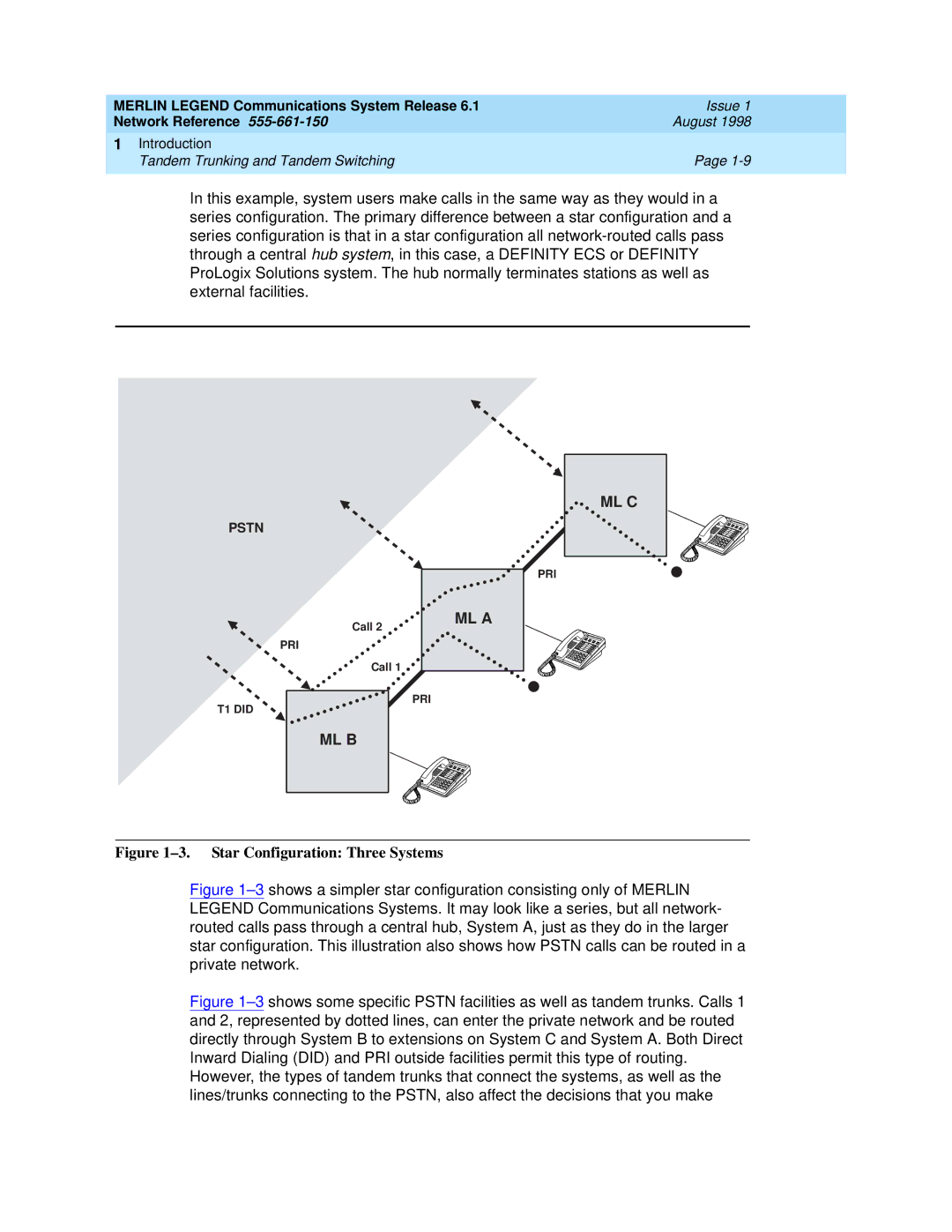MERLIN LEGEND Communications System Release 6.1 | Issue 1 |
Network Reference 555-661-150 | August 1998 |
1 Introduction | |
Tandem Trunking and Tandem Switching | Page 1-9 |
| |
In this example, system users make calls in the same way as they would in a series configuration. The primary difference between a star configuration and a series configuration is that in a star configuration all network-routed calls pass through a central hub system, in this case, a DEFINITY ECS or DEFINITY ProLogix Solutions system. The hub normally terminates stations as well as external facilities.
PSTN
Call 2
PRI
Call 1
PRI T1 DID
ML B
ML A
Figure 1–3. Star Configuration: Three Systems
Figure 1–3 shows a simpler star configuration consisting only of MERLIN LEGEND Communications Systems. It may look like a series, but all network- routed calls pass through a central hub, System A, just as they do in the larger star configuration. This illustration also shows how PSTN calls can be routed in a private network.
Figure 1–3 shows some specific PSTN facilities as well as tandem trunks. Calls 1 and 2, represented by dotted lines, can enter the private network and be routed directly through System B to extensions on System C and System A. Both Direct Inward Dialing (DID) and PRI outside facilities permit this type of routing. However, the types of tandem trunks that connect the systems, as well as the lines/trunks connecting to the PSTN, also affect the decisions that you make

